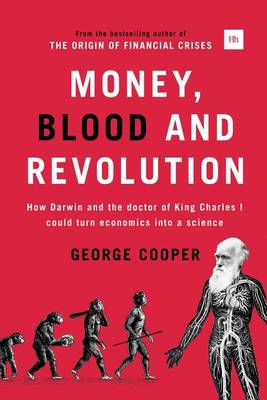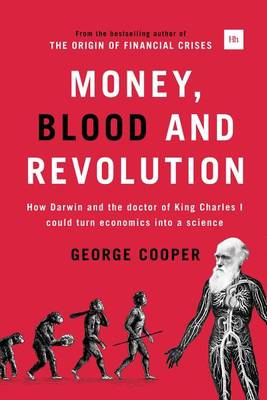
Bedankt voor het vertrouwen het afgelopen jaar! Om jou te bedanken bieden we GRATIS verzending (in België) aan op alles gedurende de hele maand januari.
- Afhalen na 1 uur in een winkel met voorraad
- In januari gratis thuislevering in België
- Ruim aanbod met 7 miljoen producten
Bedankt voor het vertrouwen het afgelopen jaar! Om jou te bedanken bieden we GRATIS verzending (in België) aan op alles gedurende de hele maand januari.
- Afhalen na 1 uur in een winkel met voorraad
- In januari gratis thuislevering in België
- Ruim aanbod met 7 miljoen producten
Zoeken
Money, Blood and Revolution
How Darwin and the Doctor of King Charles I Could Turn Economics into a Science
George Cooper
Hardcover
€ 26,95
+ 53 punten
Omschrijving
Economics is a broken science, living in a kind of Alice in Wonderland state believing in multiple, inconsistent, things at the same time. This book explains how the ideas of Darwin and Harvey could revolutionise economics, making it more scientific and understandable, and might even reveal the true origin of economic growth and inequality.
Specificaties
Betrokkenen
- Auteur(s):
- Uitgeverij:
Inhoud
- Aantal bladzijden:
- 222
Eigenschappen
- Productcode (EAN):
- 9780857193827
- Verschijningsdatum:
- 7/03/2014
- Uitvoering:
- Hardcover
- Afmetingen:
- 155 mm x 242 mm
- Gewicht:
- 516 g

Alleen bij Standaard Boekhandel
+ 53 punten op je klantenkaart van Standaard Boekhandel
Beoordelingen
We publiceren alleen reviews die voldoen aan de voorwaarden voor reviews. Bekijk onze voorwaarden voor reviews.









